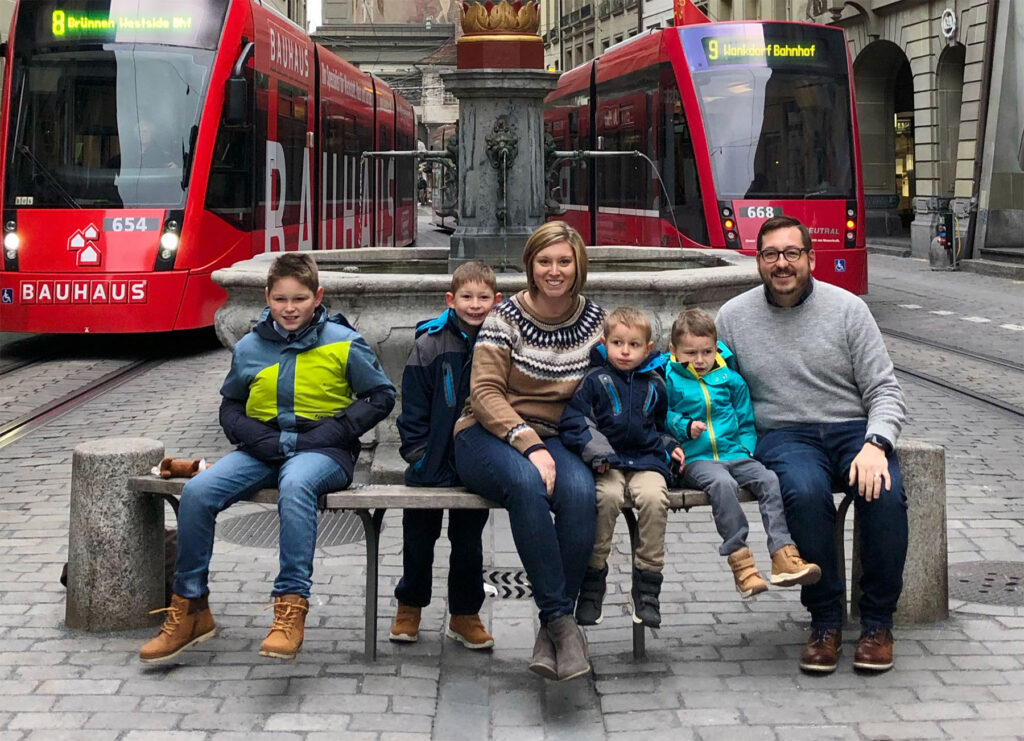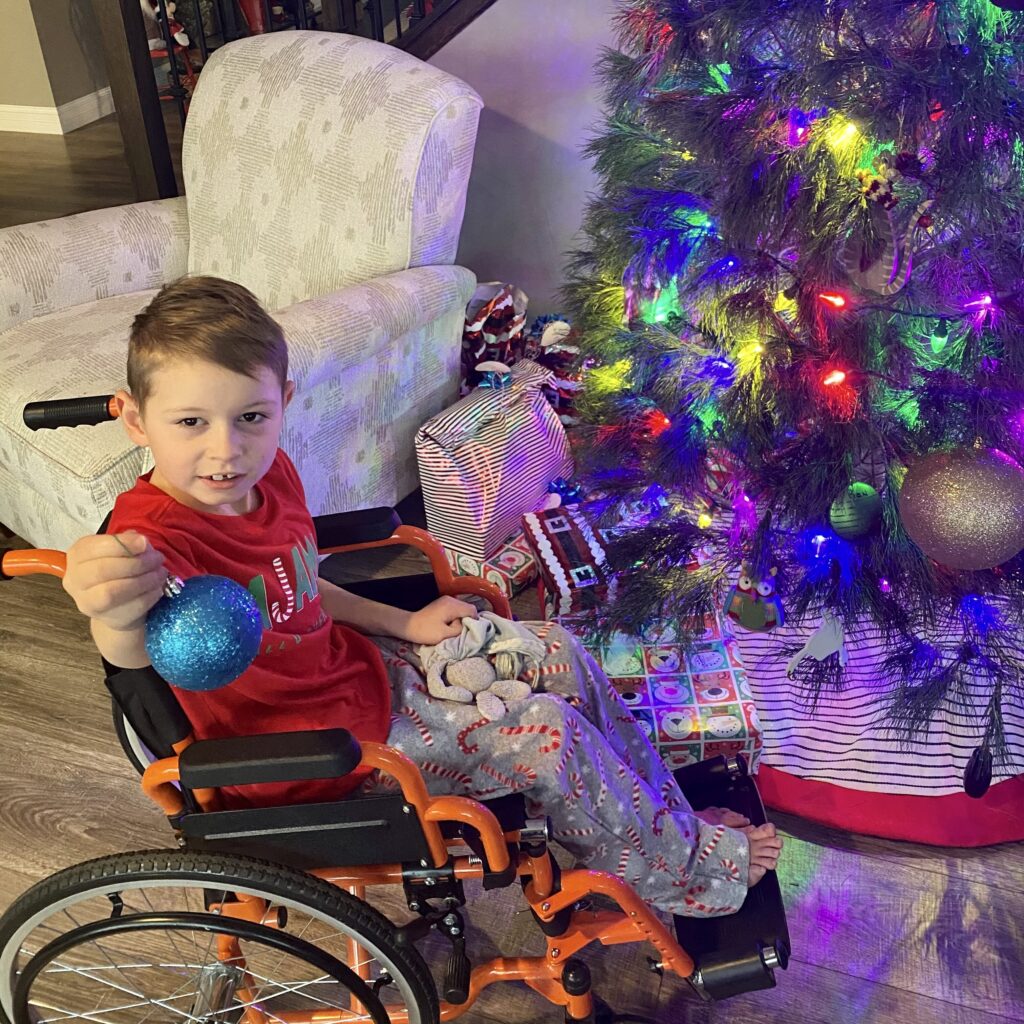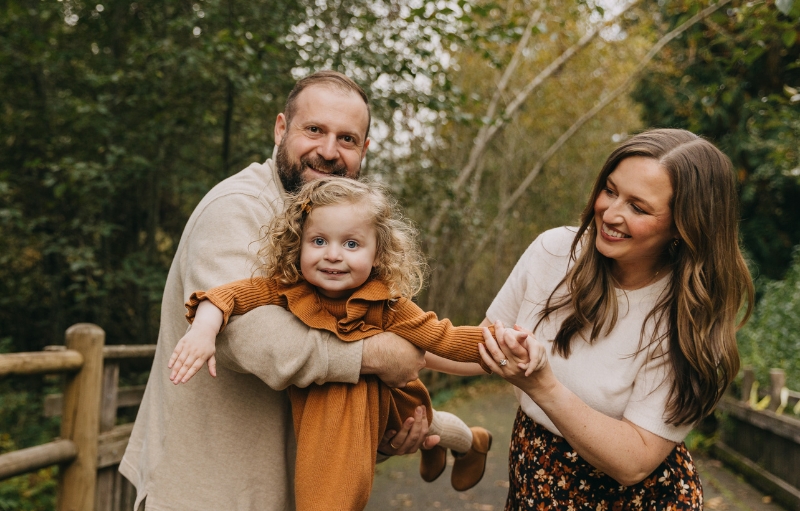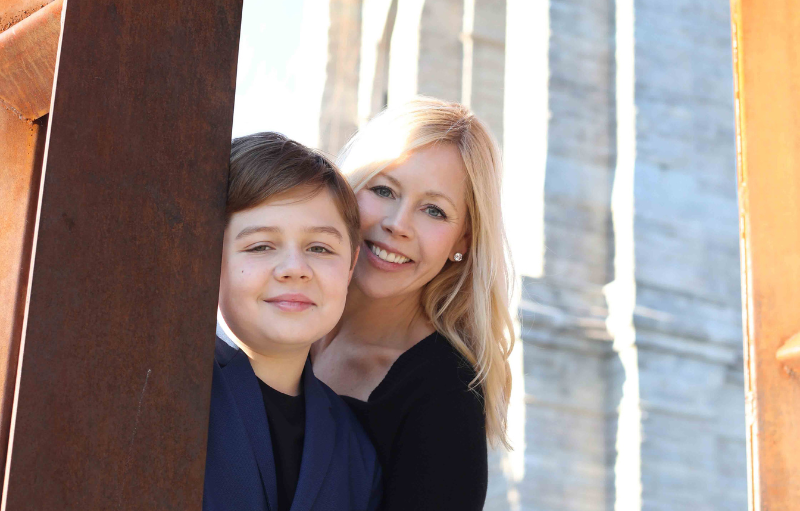Ben was a happy healthy baby for the first six months of his life. Then one morning, Ashley heard him fussing and went into his room to see what was wrong. As she laid Ben on the changing table, his body went limp, his head rolled to the side, and he shook a little. Ashley recalls every painstaking detail. “Ben kind of left his tiny little body for a moment, and then the shaking stopped. We called an ambulance. The doctor thought it was a one-off febrile seizure from a fever.” Only it turned out to be the first of many seizures.
Ben’s CT scan revealed small calcifications on his brain. His doctors could not explain why. After numerous EEGs, MRIs, blood tests and even a spinal tap, Ben and his care team were still searching for answers. The next step was a genetics panel test, which also came back inconclusive.
“No one could tell us why Ben was having these symptoms,” Ashley says. “We were given anti-seizure meds and told that Ben should have an annual MRI. That was it. We were left hoping the problem would just resolve itself. We were filled with anxiety. It was just so scary.”
Ben’s next MRI showed additional calcifications. “Without a diagnosis, there was no way to stop the calcifications from spreading. Instead, the doctor told me to watch for any loss of function and said it was possible that Ben would be in a wheelchair by the age of ten.”
“I thought to myself there’s no way that’s going to happen. I wasn’t going to dwell on it, since it didn’t make sense without a diagnosis. I just kept asking for more information. I wanted to get to the root cause and understand why my child was ill. But the doctors could offer nothing more.”
The family lived with uncertainty. Ashley noticed Ben’s speech and motor skills declining. He started using a walker. She kept pressing the doctors for answers. And when she asked for another, more comprehensive genetics test, she got one.




